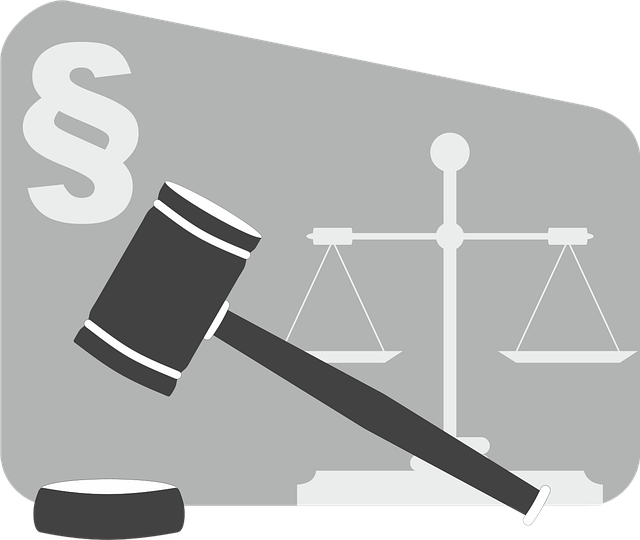Antitrust laws protect fair competition, consumers, and Sixth Amendment Rights in Court, ensuring ethical business practices. These laws foster competition, innovation, and fair pricing while holding violators accountable. The Sixth Amendment guarantees legal representation for defendants facing antitrust accusations, crucial for navigating complex trials and protecting rights. Skilled attorneys use these rights to build defenses, uncover evidence through document discovery, and achieve favorable outcomes in cases involving corporate and individual clients.
“Antitrust violation cases pose complex legal challenges, with implications that extend far beyond corporate boardrooms. Understanding these laws, crucial for maintaining fair competition, is essential. This article navigates the intricate world of antitrust litigation, focusing on key aspects like the relevance of antitrust laws and the Sixth Amendment rights of defendants in court. By exploring strategic defenses, evidence gathering, and potential penalties, we aim to shed light on the intricacies involved, especially regarding Sixth Amendment protections during legal proceedings.”
- Understanding Antitrust Laws and Their Relevance
- Sixth Amendment: A Defendant's Right to Counsel
- Legal Strategies in Antitrust Violation Cases
- The Role of Evidence and Document Discovery
- Penalties and Remedies for Corporate Offenders
Understanding Antitrust Laws and Their Relevance

Antitrust laws play a pivotal role in maintaining fair market competition and protecting consumers from anti-competitive practices. These laws are designed to ensure that businesses operate within ethical boundaries, fostering a level playing field for all participants in an industry. Understanding antitrust regulations is essential, especially for corporate and individual clients alike, as it safeguards their Sixth Amendment Rights in court. By upholding these rights, antitrust laws ensure that every party involved has a fair chance to present their case and defend against accusations of anti-competitive behavior.
The relevance of antitrust laws extends beyond legal obligations; they are instrumental in achieving extraordinary results for both businesses and consumers. An unprecedented track record of successful cases demonstrates the effectiveness of these regulations in promoting competition, innovation, and fair pricing. When violated, these laws provide a framework for holding companies accountable, preventing market dominance, and ensuring that business tactics remain transparent and competitive.
Sixth Amendment: A Defendant's Right to Counsel

The Sixth Amendment guarantees a defendant’s right to counsel during legal proceedings, which is pivotal in antitrust violation cases. This constitutional provision ensures that individuals accused of white-collar and economic crimes receive fair representation in court. The right to an attorney allows defendants to navigate complex legal systems, understand their options, and present a robust defense. In many instances, antitrust lawsuits can span across the country, making it crucial for defendants to have legal counsel familiar with both the specific case and the broader antitrust laws.
Having legal representation also ensures that defendants’ rights are protected throughout the process, from initial investigations to jury trials. Attorneys play a vital role in challenging evidence, questioning witnesses, and crafting effective arguments on behalf of their clients. This right is especially significant as antitrust cases often involve intricate factual scenarios and require a deep understanding of economic principles.
Legal Strategies in Antitrust Violation Cases

In antitrust violation cases, legal strategies often hinge on a delicate balance between upholding consumer rights and ensuring fair market competition. Defendants face an uphill battle when challenging allegations under antitrust laws, such as the Sherman Antitrust Act. However, skilled attorneys leverage powerful tools to build robust defenses. One key aspect is protecting the Sixth Amendment Rights in court, guaranteeing clients the right to counsel and a fair trial. This constitutional right enables defendants to present their case, cross-examine witnesses, and access relevant evidence, which can be crucial in winning challenging defense verdicts.
An unprecedented track record of success has been achieved by attorneys who expertly navigate these complex cases. For his clients, this translates into robust protections against overreaching legal actions. By employing strategic tactics, including careful fact-finding, expert witness testimony, and intricate legal arguments, these lawyers have consistently secured favorable outcomes, demonstrating their mastery in defending against antitrust allegations.
The Role of Evidence and Document Discovery

In antitrust violation cases, the role of evidence and document discovery is paramount. The process begins with gathering relevant documents that can prove or disprove allegations of anti-competitive behavior. This includes financial records, internal communications, and business agreements, among others. The importance of this phase cannot be overstated, as it forms the backbone of a case, shaping its trajectory and eventual outcome in court.
The Sixth Amendment Rights in Court ensure that both corporate and individual clients have the right to due process and a fair trial. This means that evidence must be obtained lawfully and through proper channels to be admissible. Across the country, attorneys navigate complex legal landscapes to protect their clients’ rights while uncovering crucial documents that can make or break a case. The ultimate goal is to ensure justice for all respective businesses involved, promoting fairness in the marketplace.
Penalties and Remedies for Corporate Offenders

When a corporation is found guilty of antitrust violations, it faces a range of penalties designed to deter future misconduct and promote fair competition. These penalties can include substantial fines, which are often calculated based on the company’s revenue or the specific harm caused by the violation. Additionally, courts may order the dissolution or restructuring of the company to eliminate anti-competitive practices and ensure compliance with antitrust laws.
In criminal cases, corporate offenders may also face legal repercussions for their actions under the Sixth Amendment Rights in Court. This ensures a fair trial process where white collar defense strategies can be employed to protect both corporate and individual clients. Achieving extraordinary results in these cases often involves meticulous legal arguments, thorough investigations, and a deep understanding of antitrust legislation to mitigate penalties and secure favorable outcomes for those accused.
Antitrust violation cases are complex legal battles that demand a deep understanding of both antitrust laws and individual rights, such as the Sixth Amendment’s right to counsel. As these cases navigate through intricate strategies, robust evidence collection, and stringent penalties, it’s evident that proper legal representation is paramount. By utilizing effective legal strategies and ensuring robust defense mechanisms, defendants can navigate these challenges while upholding their Sixth Amendment rights in court.






